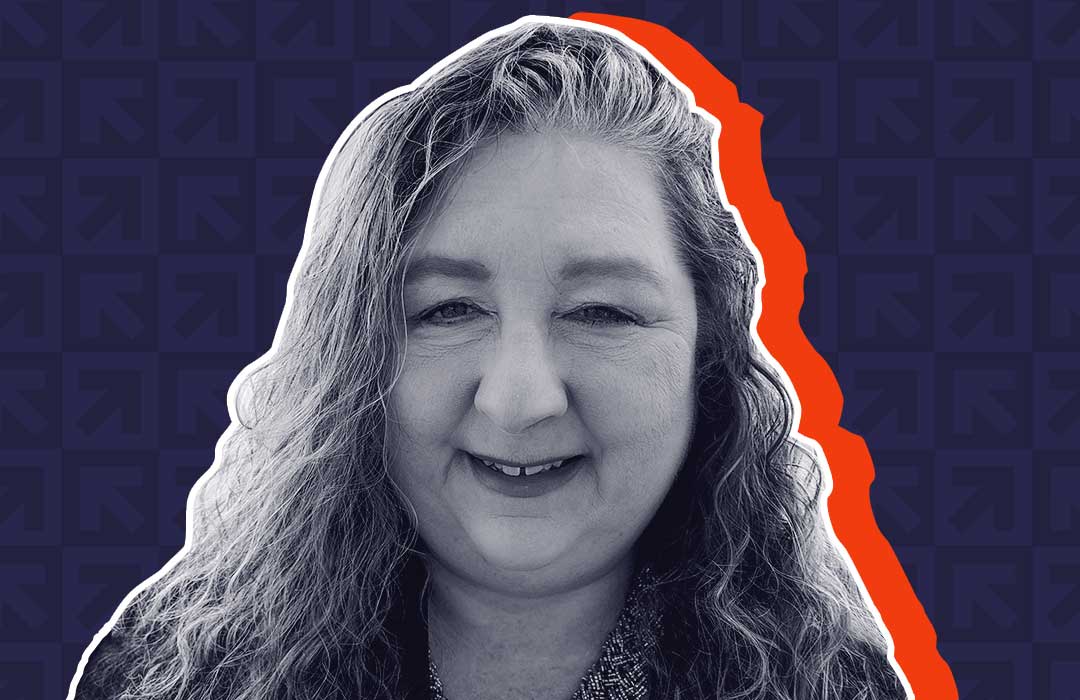Betsy Mayotte likes to joke that she was genetically destined to work in education finance, with a mom who was a teacher and dad who was the president of a credit union.
But there’s plenty of coincidence in her journey, too. Like when she was fresh out of Bentley University with loan payments looming, and the first good-paying job she found was with a student loan servicer. Or later, when a good boss at a nonprofit student loan guaranty agency let her expand her role as a compliance officer into borrower advocacy.
Decades later, Mayotte is still advocating for borrowers, now as the founder and president of The Institute of Student Loan Advisors (TISLA). The nonprofit organization, which just turned 5, provides free one-on-one advice to borrowers.
“The way I look at it, life brought me to this point where I attained a certain weird little set of skills,” she says. “I sort of had no choice. This is what I was supposed to do.”
Mayotte’s days are a mix of counseling borrowers via email, fundraising for TISLA, researching grants and managing partnerships, like one where she’s currently working with low-income housing organizations in Massachusetts to offer student loan education to tenants. When she has time, she reaches out to policymakers and other industry officials to push for changes that would improve the system.
“I’m sort of like a big focus group,” she says. “I can identify trends on where confusion lies or where borrowers are struggling.”
It’s also not unusual for her to spend hours a day on social media, using her decades of experience to answer borrowers’ questions and outline federal policy changes. She’s particularly active on Reddit, where she goes by u/Betsy514 on subreddits like r/StudentLoans and r/PSLF. She has quite the reputation on the forums: Earlier this year, when a Redditor was dismayed by a letter her mom had received about a three-decade-old debt that had erroneously ballooned to $955,000.02, Mayotte was tagged to the rescue. She helped the borrower get most of the debt discharged.
To keep the lights on, TISLA relies on grants, fundraising and selling services to employers and associations. Mayotte wants consumers to trust their advice is as neutral as can be, so the organization has turned down “a lot of money over the years” by declining to put ads for student loan products on the website. (To keep her own lights on, Mayotte also does some consulting work on the side.)
Last year, TISLA worked with 16,000 individual borrowers.
She expects that number will double this year, given how many borrowers have reached out for guidance during recent developments, including loan servicer changes, an overhaul to Public Service Loan Forgiveness, new rules to help borrowers defrauded by their college, the pandemic forbearance and, of course, plans for one-time debt cancellation unveiled by the Biden administration — and then blocked by the courts. Since the White House’s August announcement of its student loan forgiveness plan, borrower emails to TISLA have increased 400%.
“It’s a really unique period in the history of student loans that we’ve never seen before and we will likely never see again,” Mayotte says.
With broad loan forgiveness up in the air and millions of borrowers slated to resume payments in 2023 after a three-year pause, Mayotte is worried about having the bandwidth to help all the borrowers who will need it. The longer borrowers go without making payments, the harder it will be to get them back into the habit, she says. Regardless of what happens with Biden's loan forgiveness plan, a rise in delinquencies and default is all but guaranteed.
“We’re frantically trying to get some grants in so we can add staff to be able to meet that need,” she says.
Alongside (hopefully) staffing up, TISLA will be promoting tools to help borrowers get into the right repayment plan, and Mayotte will do an “Ask Me Anything” on Reddit to draw attention to the payment restart. She’s also planning to offer another training for financial planners — “the more people that have the nerd-level knowledge of student loans, the better.” (Off the cuff, Mayotte can recite exact regulations, like 34 CFR 682.210 for the deferment rules of older federal loans.)
Though she can’t say with certainty whether loan forgiveness will survive its legal challenges, or when precisely payments will resume, or what broader repayment plan fixes may come, she’ll be there to walk borrowers through it all with fair, free advice.






